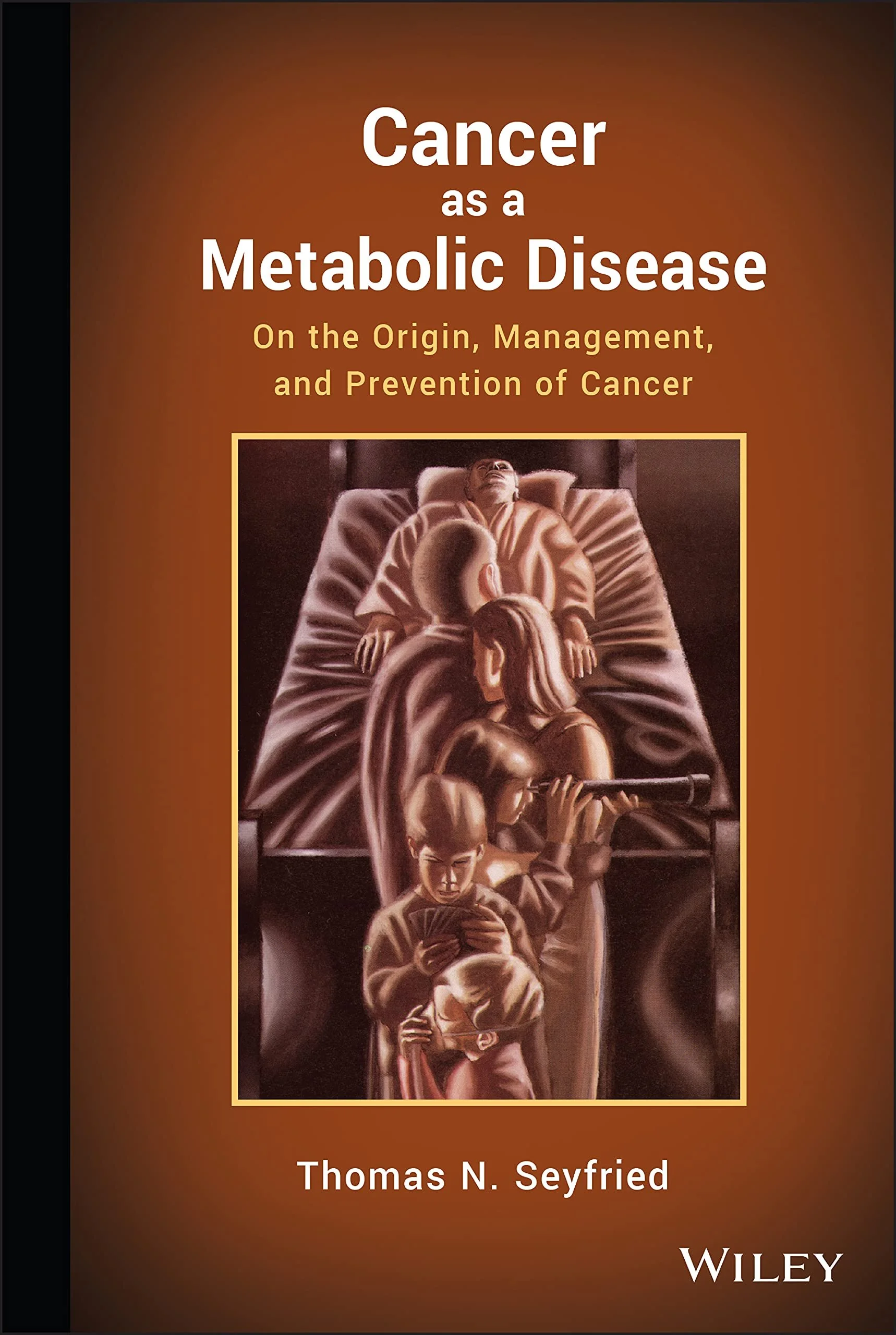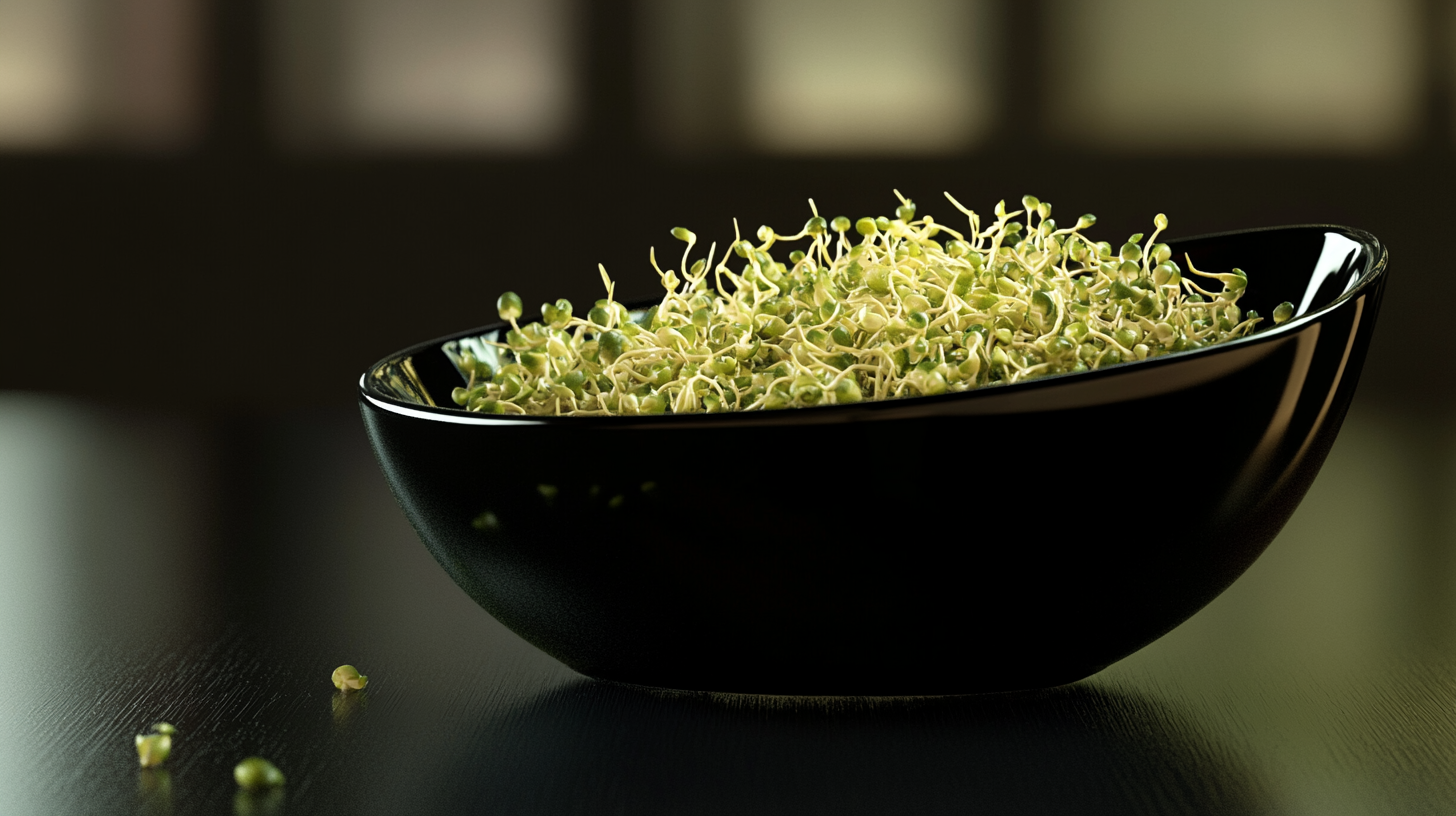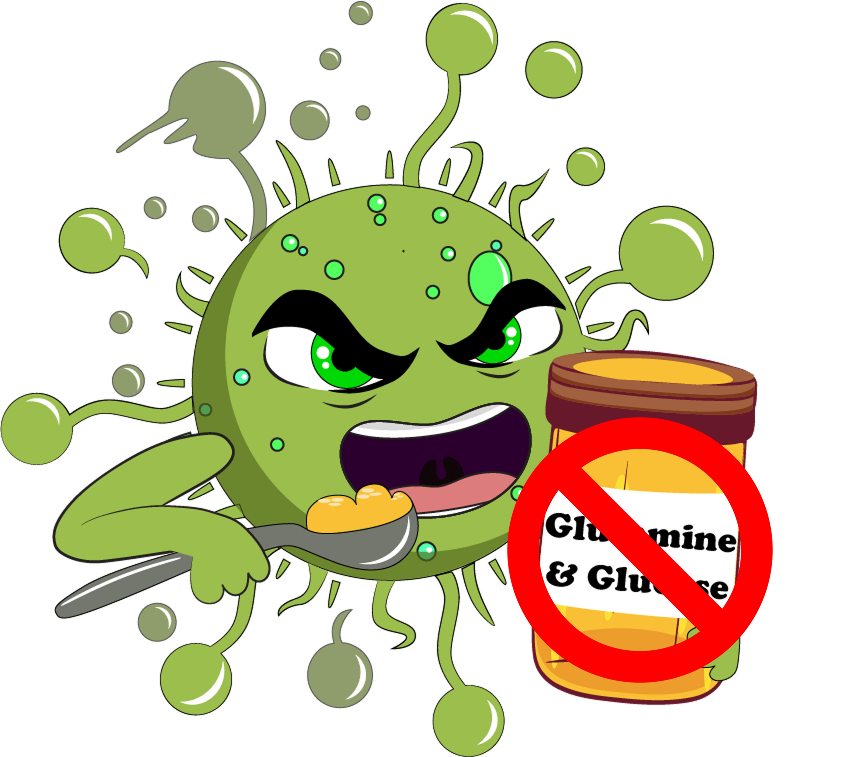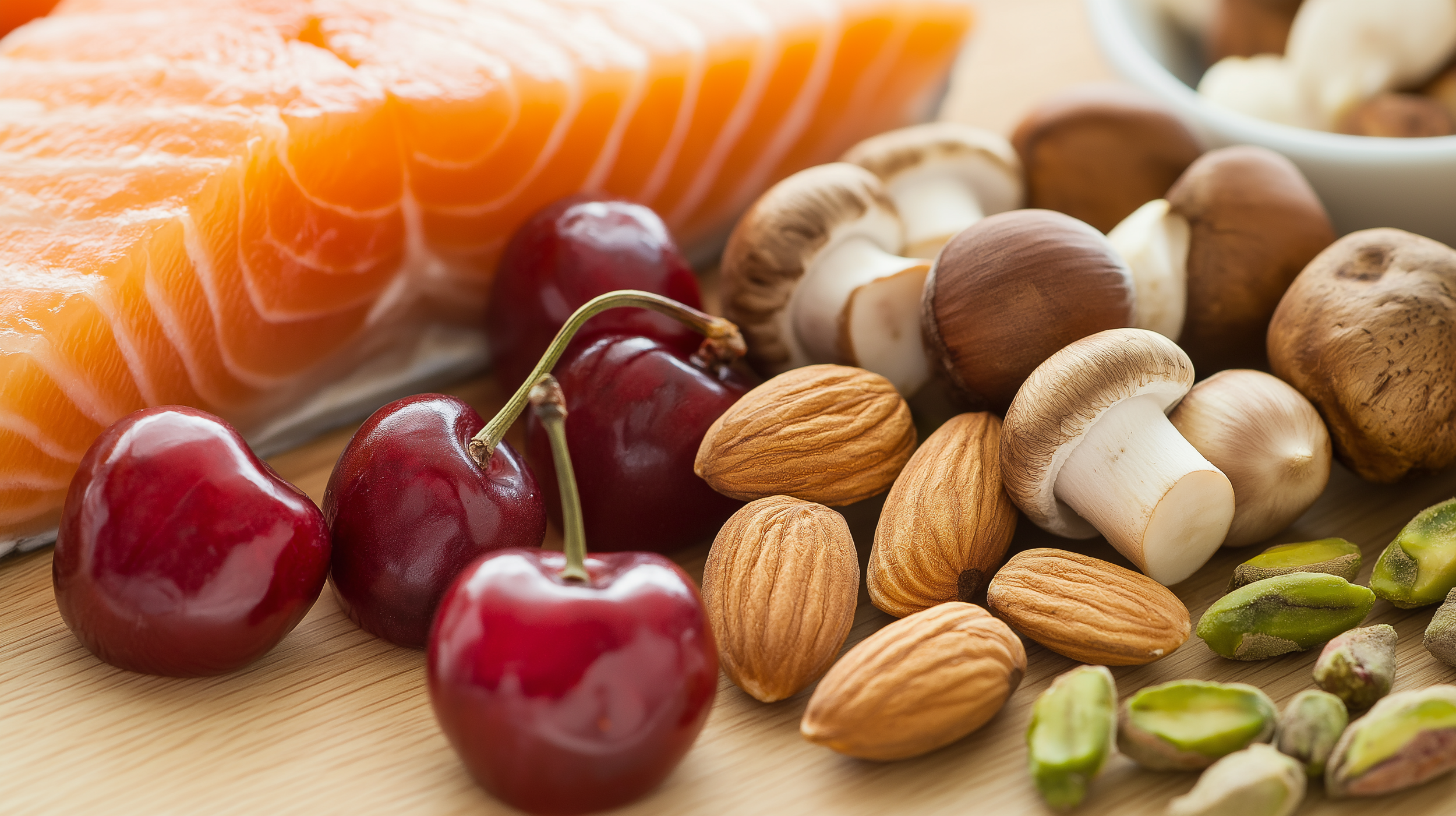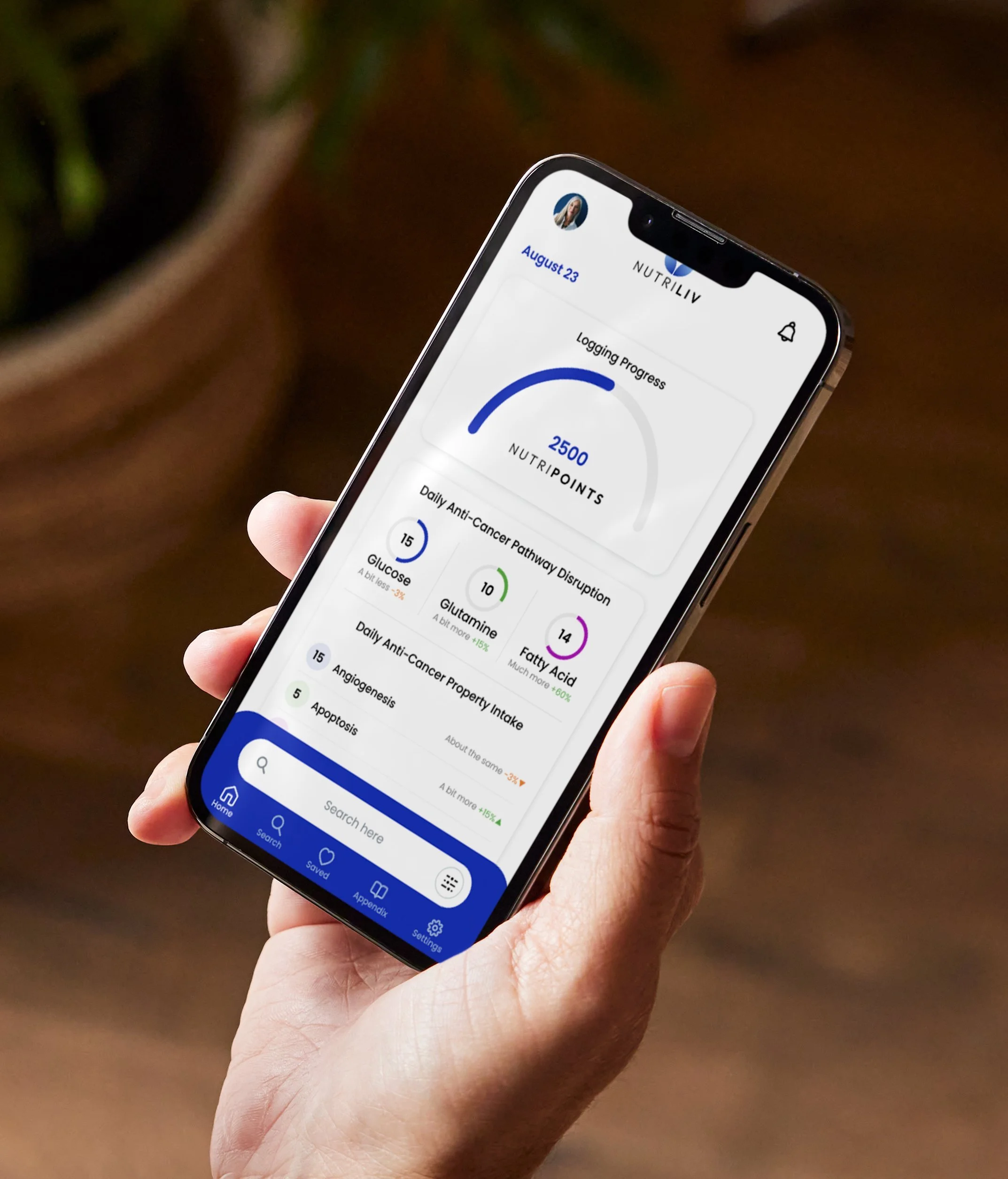Dr. Thomas Seyfried's Protocol: Guide to Targeting Metabolic Weakness in Cancer
How to use Dr. Thomas Seyfried’s Protocol. Feel free to watch the video instead of reading the article.
When it comes to treating cancer through Metabolic Therapy, Dr. Thomas Seyfried stands out as a leading voice in the field. You may have heard him share his insights on popular health podcasts with Dr. Peter Attia, Dr. Mark Hyman, or Steven Bartlett. While these discussions do a great job explaining how cancer cells have unique metabolic vulnerabilities we can target, many patients are left wondering: 'How do I actually put this knowledge into practice to improve my outcomes?' We'll walk you through practical ways to incorporate Dr. Seyfried’s approach to metabolic therapy into your treatment plan, covering everything from nutrition and repurposed medications to dietary supplements and lifestyle modifications.
Note: Patients should consult with a licensed medical provider familiar with their specific situation before implementing anything discussed in this article
Cancer as a Metabolic Disease
Dr. Thomas Seyfried, Boston College
We want to share with you the groundbreaking work of Dr. Thomas Seyfried from Boston College, who has dedicated his career to understanding how cancer cells function differently from healthy cells.
Dr. Seyfried Research: Starve Cancer of Glucose and Glutamine
His research, detailed in numerous papers and his book “Cancer as a Metabolic Disease”, builds on a remarkable discovery by Nobel Prize winner Otto Warburg – cancer cells are incredibly hungry for glucose, requiring up to 200 times more than normal cells to survive. But here's the key insight from Dr. Seyfried's research: just targeting glucose isn't enough. His work shows that the best outcomes come from targeting both glucose and another crucial fuel source for cancer cells – an amino acid called glutamine.
Dr. Seyfried recommends using a ketogenic diet – essentially a very low-carbohydrate approach – to help cut off cancer's glucose supply. While keto diets are excellent at reducing blood glucose levels, it's worth noting that one of Dr. Seyfried's other recommendations – a compound called DON – isn't currently accessible since it's only available in clinical trials, which aren't running at the moment.
But don't worry – we'll show you practical, accessible ways to target these same metabolic pathways. We'll explore specific foods, medications, and supplements that have been shown to help block cancer's access to both glucose and glutamine.
Which foods can help starve cancer of glutamine and glucose?
Let's start with nutrition. While following a ketogenic diet naturally reduces the glucose available to cancer cells, there's another powerful strategy we can add – specific foods that actively block cancer cells from using the glucose that is present. Let me share some fascinating examples.
Chaga and Cordyceps Mushrooms
Consider medicinal mushrooms like chaga and cordyceps. These powerful fungi, which you can easily consume as tea, have demonstrated an impressive ability to block glucose uptake in cancer cells. We also see similar benefits in common vegetables like basil, dandelion root, and edamame – all backed by research showing they can help inhibit glucose uptake.
Basil, Dandelion Root, and Edamame
But what really excites me are the foods that can target both glucose and glutamine pathways simultaneously. Three standouts here are turmeric, ginger, and broccoli sprouts. While you can find broccoli sprouts in health food stores for about $5 a package, I always recommend investing in a $20 grow kit which can be purchased online. Not only will you save money in the long run, but you'll have a continuous supply of pesticide-free sprouts right at home.
Broccoli Sprouts
Speaking of turmeric and ginger, these are the only ingredients I use in my juicing routine. This dynamic duo creates a spicy blend that packs a real punch against cancer – studies have identified over 24 different anti-cancer and health-optimizing benefits from their natural compounds.
Turmeric and Ginger
Here's how you can think about nutrition: every meal is an opportunity to fight cancer. Each bite can deliver natural compounds that help block both glutamine, glucose, or deliver other anticancer benefits. If you are feeling overwhelmed trying to find and keep track of all these beneficial foods I recommend you take a look at the anticancer nutrition app called NutriLiv. It's an incredible tool for anticancer nutrition that practically every patient in my clinic uses.
NutriLiv: AntiCancer Nutrition App
What makes NutriLiv so valuable is how it simplifies complex nutritional science so patients can make practical, daily choices. It helps you identify foods that block glutamine and glucose, provides detailed breakdowns of each food's anti-cancer properties, and even shows how different foods have evidence of improving treatments like chemotherapy and radiation while potentially reducing side effects. One of our favorite features is the daily tracking – you can actually see how your intake of cancer-fighting foods compares from one day to the next.
Repurposed Medications that can help target glutamine and glucose pathways
Now let's explore an exciting area of cancer treatment – repurposed medications. These are FDA-approved drugs that were originally developed for other conditions, but researchers have discovered they can also help fight cancer by targeting its metabolic pathways. We want to share three remarkable examples with you.
Doxycycline
First, let's look at doxycycline. You might know this as an antibiotic that cancer patients often receive when fighting infections during chemotherapy. But here's what's fascinating: research has shown it can actually disrupt how cancer cells use glucose. It works by affecting the mitochondria – the cell's power plants – which forces cancer cells to change how they process energy. This not only reduces their glucose consumption but also limits how much glutamine certain types of cancer cells can use, essentially starving them of two crucial fuel sources.
Mebendazole
The second medication is mebendazole, which has an incredible track record of safety, having been prescribed to over 100 million people worldwide for treating parasitic infections. Scientists made an exciting discovery – this medication can simultaneously disrupt cancer cells' ability to use both glucose and glutamine. It works in multiple ways: it blocks glucose transporters on the cell surface, interferes with an enzyme called glutaminase that cancer cells need to process glutamine, and even disrupts a key signaling pathway called mTOR that cancer cells rely on for their metabolism.
Metformin
Our third example is metformin, a common medication used as a first-line treatment for diabetes. Researchers found it can effectively disrupt cancer cells' glucose metabolism by targeting something called mitochondrial complex 1. This sets off a chain reaction that ultimately reduces cancer cells' ability to take up and use glucose for energy.
If you're interested in exploring how these medications might fit into your treatment plan, we want you to know that Personalized Medicine clinic has experience in prescribing these medications as part of metabolic therapy.
Dietary Supplements known to block glucose and glutamine
While getting nutrients from food is always our first choice, sometimes dietary supplements can play a valuable role, especially when it's challenging to get therapeutic amounts of certain compounds through diet alone.
Berberine
Berberine – it's a fascinating compound naturally found in the bark, stems, and roots of certain plants. While you could try to consume these plant parts directly, berberine is much more practical to take as a supplement. What makes berberine particularly exciting in cancer care is its ability to simultaneously disrupt both glucose and glutamine pathways that cancer cells depend on.
Lets break down how berberine works: It's like throwing multiple wrenches into cancer's energy machinery. First, it inhibits cancer cells from taking up glucose and using it for energy. It does this by activating a cellular master switch called AMPK, which reduces how much glucose cancer cells can consume. It also decreases the number of glucose transporters on cancer cells' surface, making it even harder for them to access glucose. But berberine doesn't stop there – it also blocks a specific protein called SLC1A5 that cancer cells use to absorb glutamine, essentially cutting off another key fuel source.
Melatonin
It may surprise you but next up is melatonin. While most people know it as the 'sleep hormone' that our bodies naturally produce, melatonin is actually found in some foods in addition to being available as a supplement. What's remarkable about melatonin is that scientists have discovered it has 11 different ways it can fight cancer. When it comes to targeting cancer's metabolism specifically, melatonin works in three key ways:
◉ It reduces the number of glucose transporters on cancer cells
◉ It interferes with enzymes that cancer cells need to process glucose
◉ It helps deplete glutathione, which cancer cells need for survival
For those interested in exploring more supplement options that can help block glucose and glutamine, the NutriLiv app has a comprehensive database you can reference.
Note: However, we want to emphasize something crucial: before adding any supplements to your protocol, please have a detailed discussion with your healthcare provider who knows your specific situation. They can help ensure these supplements are appropriate and safe for your particular case.
Physical Activity Benefits
Let's talk about one final powerful tool in your cancer-fighting toolkit – physical activity. Regular exercise isn't just about staying fit; it's a scientifically-backed way to support your cancer treatment on multiple levels. Not only can exercise potentially enhance your treatment's effectiveness and boost your immune system, but it also helps manage treatment side effects. And here's something particularly relevant to our discussion today: exercise naturally helps lower both glucose and glutamine levels in your body, directly supporting a metabolic approach to fighting cancer.
We know taking these steps can feel overwhelming at first, but remember – knowledge is power. Understanding these practical strategies helps build the confidence you need to take action and improve your outcomes. And we're not done supporting you yet. Stay tuned for an upcoming articles where we'll dive deep into other ways anti-cancer nutrition can make a real difference in your journey.
NutriLiv: The #1 AntiCancer Nutrition App
◉ Allowing users to search for foods, supplements, and natural extracts known to inhibit cancer cells from accessing glutamine and glucose
◉ Providing clear item profiles that break down how food can help kill cancer cells
◉ Offering detailed evidence of how food and other natural items can glutamine and glucose from cancer cells
◉ Enabling users to track their anticancer nutrition progress
Every time you eat, it is an opportunity to hit the disease with nutrition that is known to have anticancer capabilities. NutriLiv can help you use the latest evidence to win the battle.


